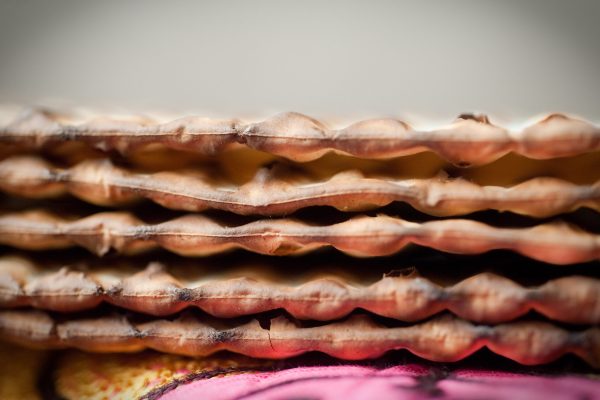If you are invited to be a guest at a seder, inquire about what you can bring. Some hosts would appreciate a dish for the meal, some might want guests to teach a song or lead a portion of the haggadah, and others make no requests. If you are given no instructions, it is probably wise to stay away from cooked dishes—many people keep kosher for Passover and will not allow food cooked in someone else’s home to be brought in. Things you can bring are kosher-for-Passover wine or chocolate, flowers, or fruit. Some hosts might appreciate a new book for Passover (a new haggadah, for instance) or an object they can use on the seder table—a Miriam’s or Elijah’s cup, a matzah cover, etc.











